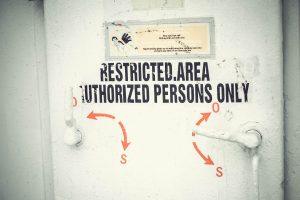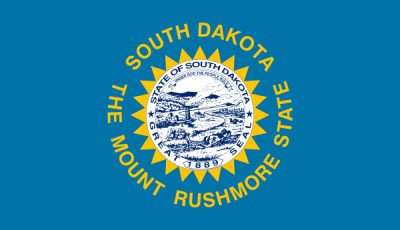U.S. vs UK: Do Online Safety Laws Makes The Internet Safer?
 Online safety law is an evolving field. In the U.S., Section 230 of the Communications Decency Act of 1996 is one of the only laws of its kind in the world. Section 230 immunizes digital platforms based in the United States from the actions of third-party users.
Online safety law is an evolving field. In the U.S., Section 230 of the Communications Decency Act of 1996 is one of the only laws of its kind in the world. Section 230 immunizes digital platforms based in the United States from the actions of third-party users.
Section 230 was established by the Communications Decency Act (CDA) — a pro-online censorship law that was proposed as a part of the legal and regulatory catch-up game to meet the rapid development of the internet and computer technologies. CDA prohibited users from knowingly transmitting “obscene” or “indecent” messages or images to recipients under the age of 18 years. It was an attempt to regulate the internet, ostensibly to make it safer for everyone. But the online safety and anti-indecency measures were found to violate the First Amendment.
The CDA also outlawed what was considered the “knowing” display of materials that are “patently offensive” and are accessible to those under 18. Former U.S. Senators James Exon, D-Nebraska, and Slade Gorton, R-Washington, introduced the initial formulation of the proposal to the Senate Commerce, Science, and Transportation Committee in 1995. On June 15, 1995, the CDA was added to the Telecommunications Act of 1996 by the Senate, in a vote of 81-18. Exon and Gorton were successful, thanks to their work and the lobbying of anti-porn and child safety groups at the time, who saw the uncensored internet as directly harmful to minors.
Eventually passed by Congress, Title V of the Communications Act of 1996 dramatically changed the internet and online communications in ways that still impact the modern web economy. Notably, Section 230 was implemented and interpreted to mean operators and owners of online digital platforms are not liable for the words and actions of third parties who use their services.
This is known as the CDA’s safe-harbor provision, further encouraging the owners of platforms to self-regulate and eliminate harmful cases of speech, while encouraging most instances of speech to flourish online. For the rest of the CDA, the law met its inevitable end with the benchmark ruling by the United States Supreme Court, via the case of Reno v. American Civil Liberties Union. To truncate the history lesson, the court found that the internet is a marketplace of ideas and that an invasive law like the CDA would limit free speech.
This case reformed the nature of tech law in this country for the better, in most cases. Section 230 is often referred to by its proponents as the “First Amendment of the internet.” Section 230 permits every online entertainment provider to thrive, regardless of the content or information. The adult entertainment industry is a prime example.
Though porn has a mixed history with Section 230, many adult industry companies recognize the law’s provisions as some form of protection from the actions of many third-party users who use their otherwise legal platforms for nefarious actions. Since the passage of carveouts to Section 230, such as the Trump-era FOSTA/SESTA legislation, the trend of “internet safety” and “online safety” legislation across the world suggests troubling trends for free speech online.
The questions in this column can span cultural and national political boundaries in any country: Do online safety laws make the internet safer? What constitutes a “safe” internet? What are the ideological and practical expectations for platforms once these safety laws are in place?
These are daunting questions, with no clear answers. The United Kingdom is the textbook case for online safety legislation in recent years. For some time, the conservatives in UK Parliament have been trying to put to law a noted proposal known as the Online Safety Bill (OSB).
The OSB is the collective product of the concerns of internet safety organizations and right-wing members of Parliament who say they’re trying to limit the harm done to minors and at-risk individuals due to online interactions and presence. Following the release of a 2019 Online Harms White Paper, the OSB was proposed and officially drafted on May 12, 2021. If passed, it will give the relevant UK Secretary of State and its department the power, with the approval of Parliament, to designate and address harmful content online. This could include some online trolling, illegal pornographic content, underage access to legal porn and various forms of internet fraud. The bill also promises sweeping punishments for the executives of companies who violate the provisions of the Online Safety Bill, including both criminal sanctions and civil fines.
OSB has fallen short time and time again to appropriately balance online activity and free speech, a right that the United Kingdom holds just as sacrosanct as we do here in the United States. The bill has progressed, but now remains at a stalemate. There are many reasons why. One of the primary points of contention in the bill is a section that deals with “legal but harmful” forms of content on the web.
Critics in the tech community across the country and across the world have indicated that the Online Safety Bill places too much emphasis on harms over the actual nature of free expression on certain platforms, thus leading to the fact that large technology companies that aren’t even based in the United Kingdom — namely in Silicon Valley and the United States — are doing more to limit legitimate speech due to fears of penalty from His Majesty’s government. Parliament has yet to define what qualifies as harmful content and this leaves service providers with no clear definition of what to expect. A survey conducted in August 2022 found that 58% of those polled, primarily tech professionals active in the United Kingdom, found that OSB would negatively impact the freedom of speech for the country’s many users on the internet.
There is no evidence that OSB would do anything to improve online safety. Because of this, the question remains: Do online safety laws make the internet safer? No. In fact, the nature of the internet is upended from being a decentralized ecosystem of ideas to a government utility.
“The UK government has had more than a year to revise its Online Safety Bill into a proposal that wouldn’t harm users’ basic rights,” argued Joe Mullin, a policy analyst for the Electronic Frontier Foundation. “It has failed to do so, and the bill should be scrapped. The current bill is a threat to free expression, and it undermines the encryption that we all rely on for security and privacy online.”
Mullin makes a strong point. OSB would harm basic rights on the internet. And, just like other places in the world, proposed laws like the Online Safety Bill (like the long list of crazy proposals before Congress here in the U.S.) do much more harm than good. At what cost do we as a society surrender our civil liberties and freedoms for the benefit of just a small cross-section of society? What is it worth?
Restricted access sign photo by Pew Nguyen from Pexels













